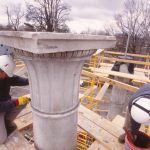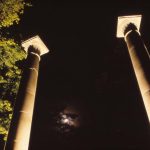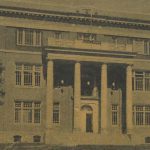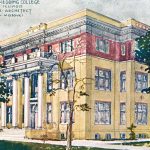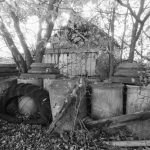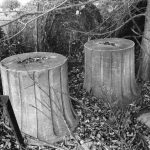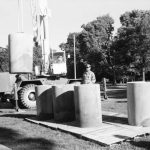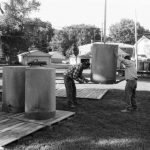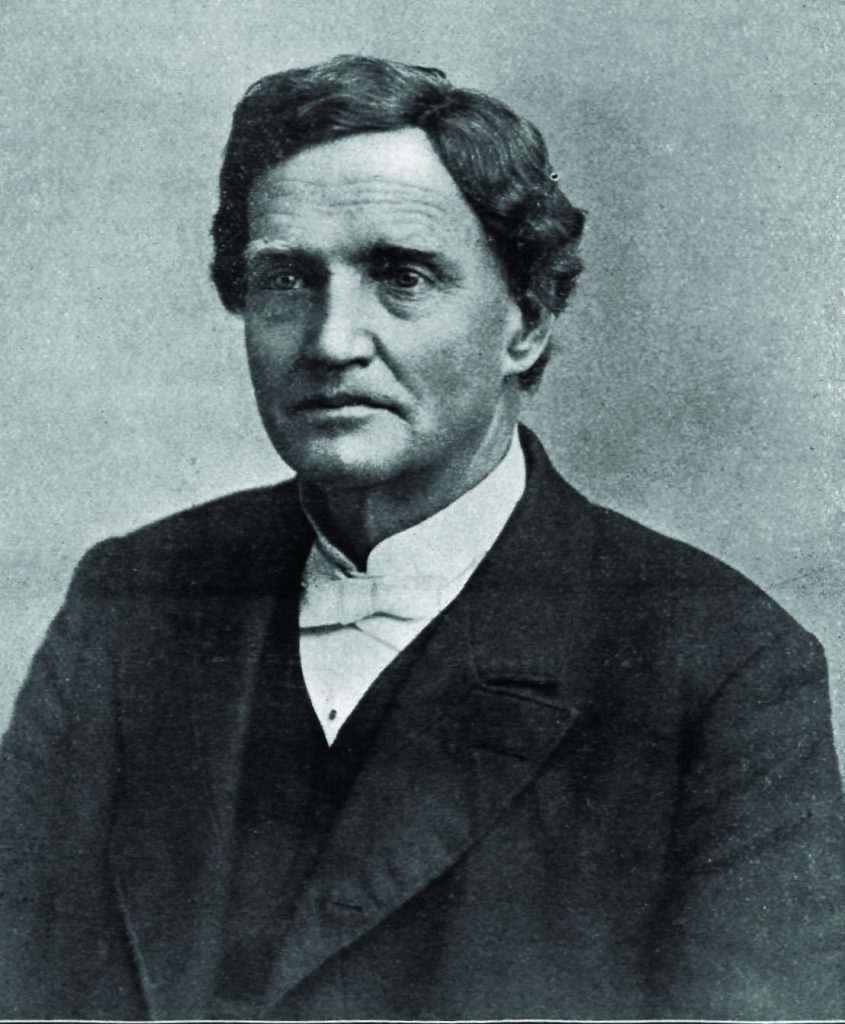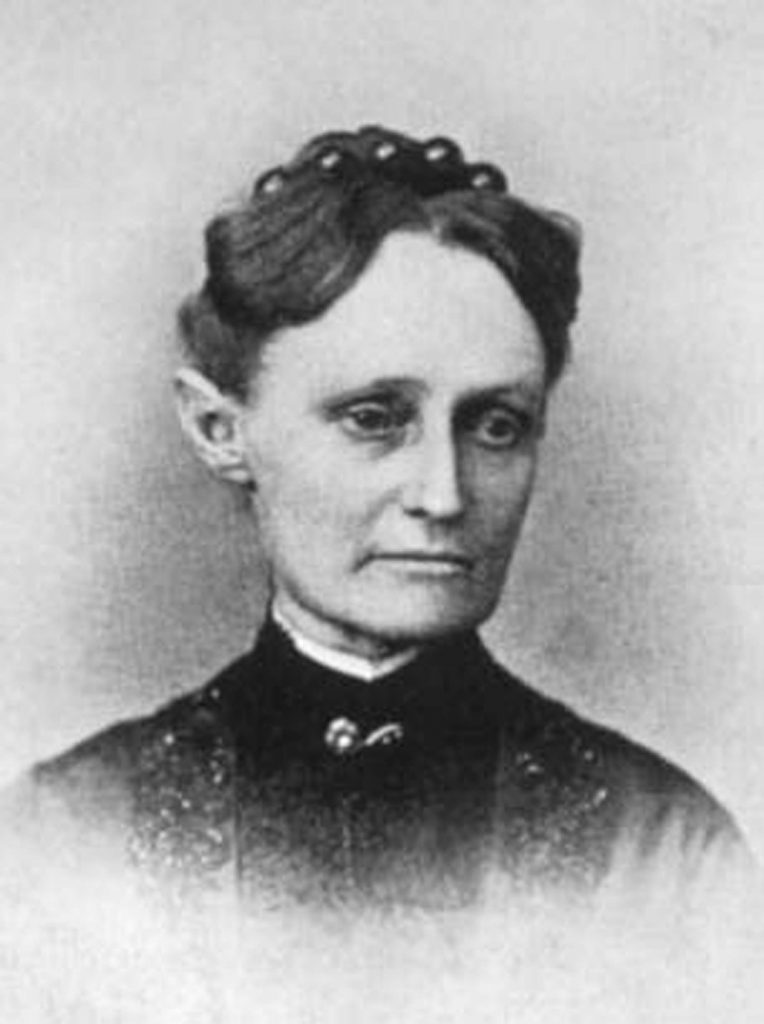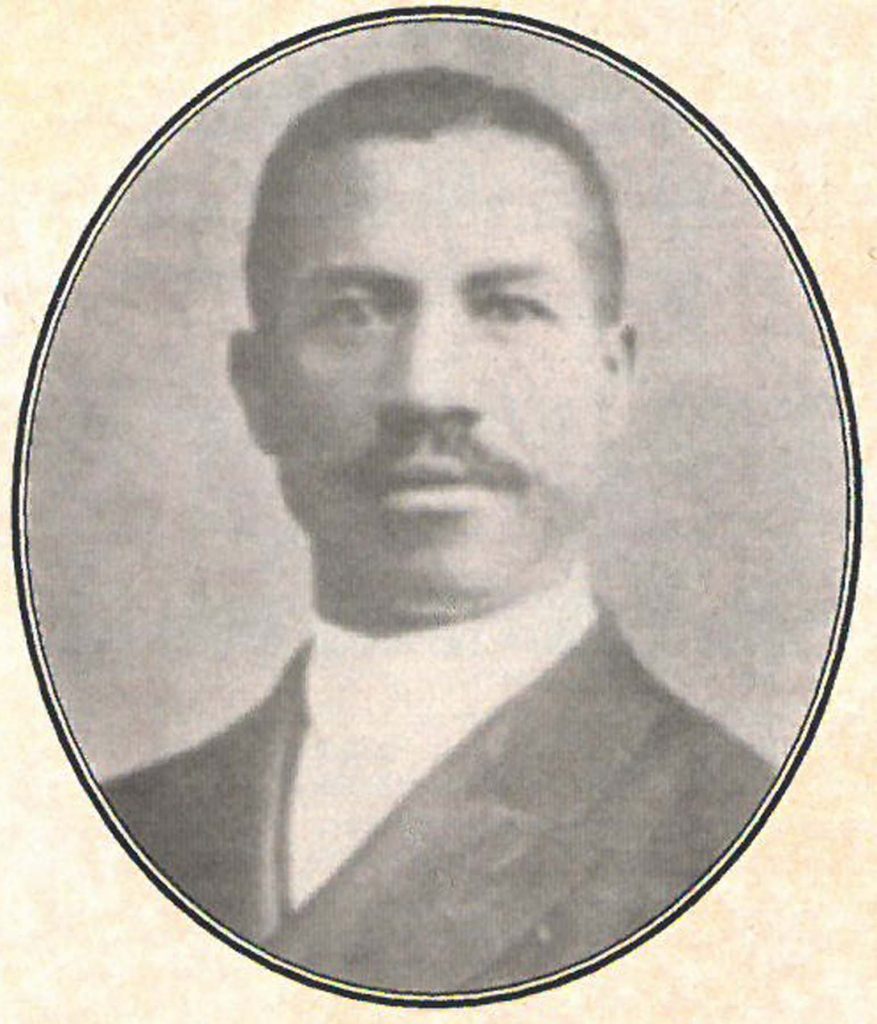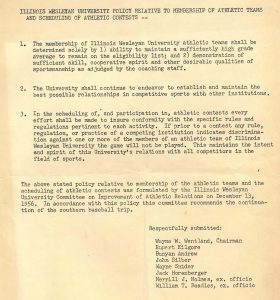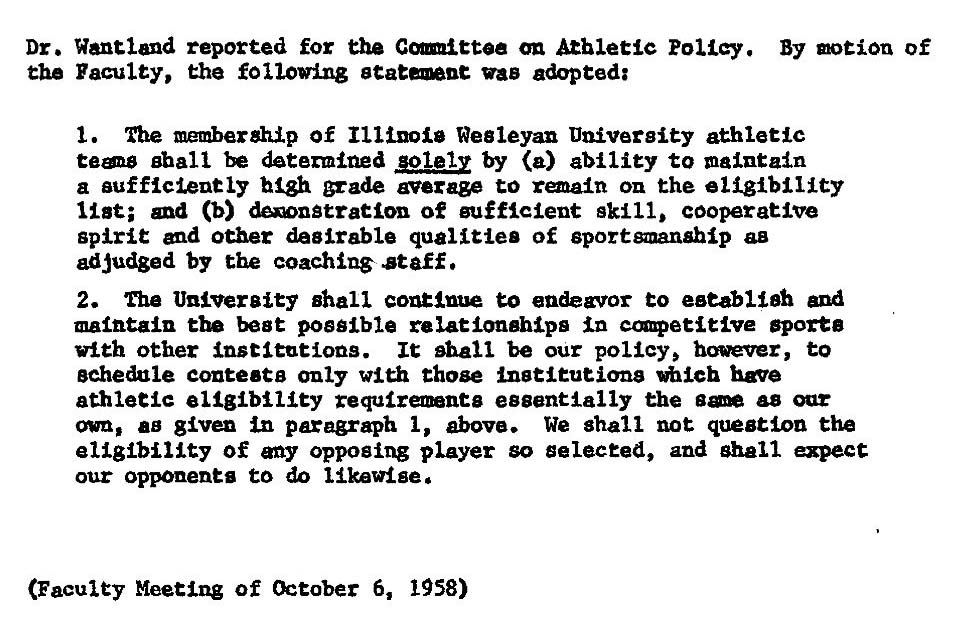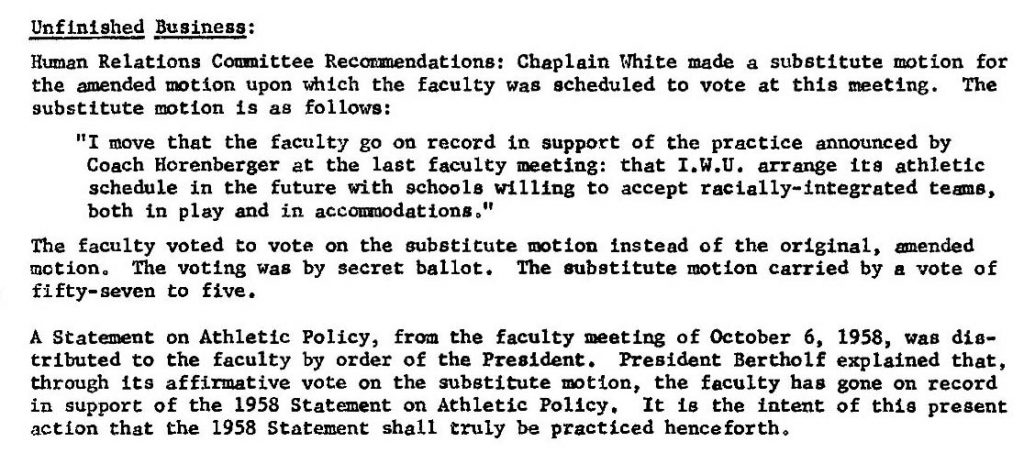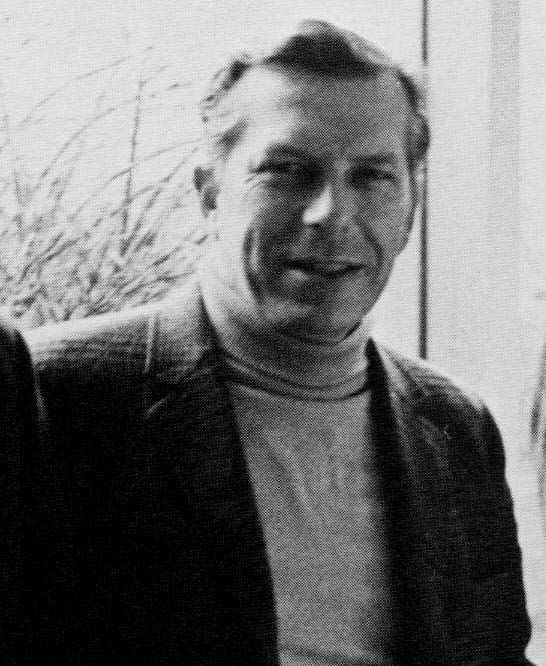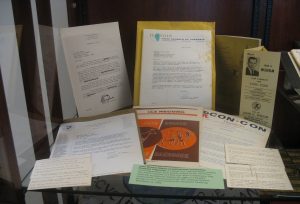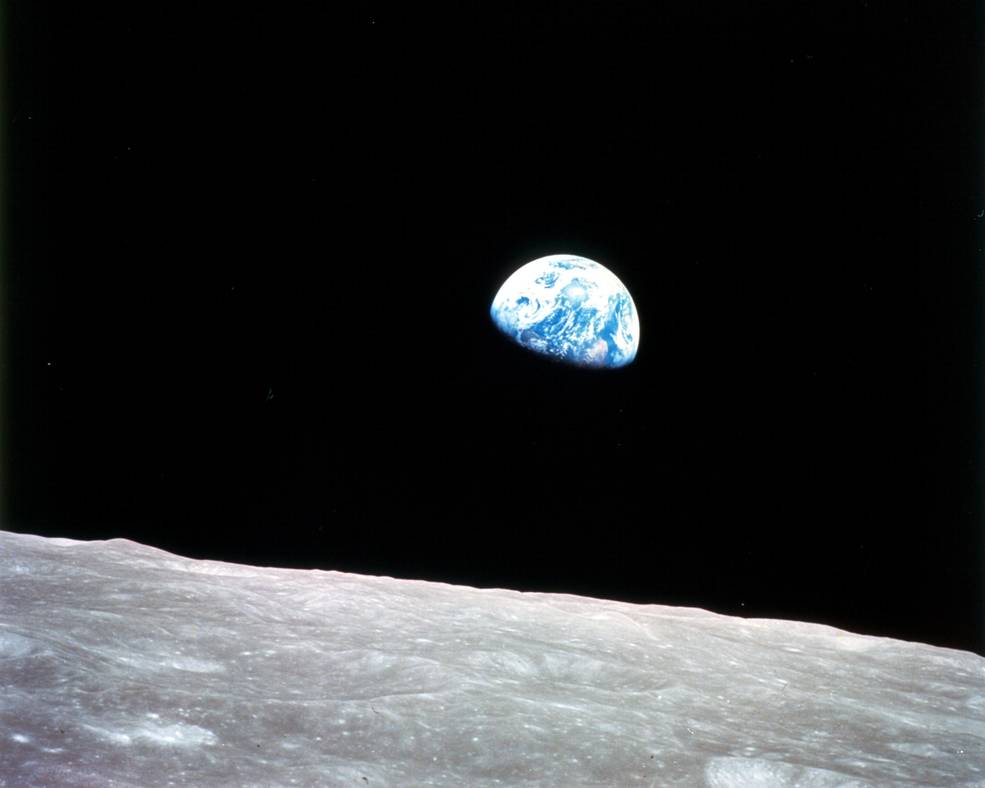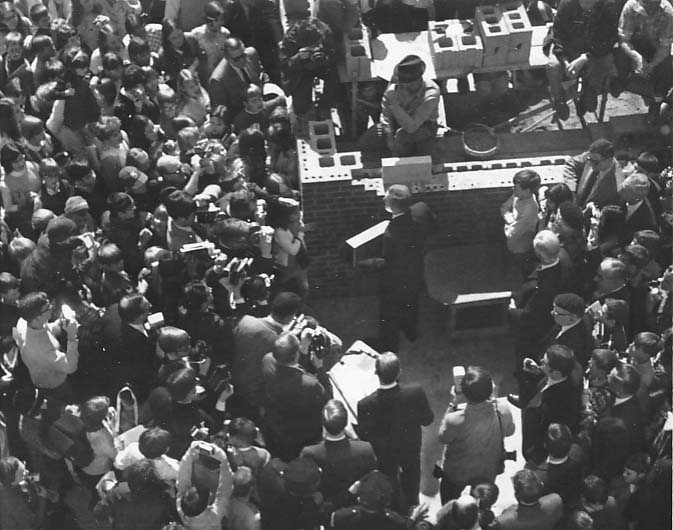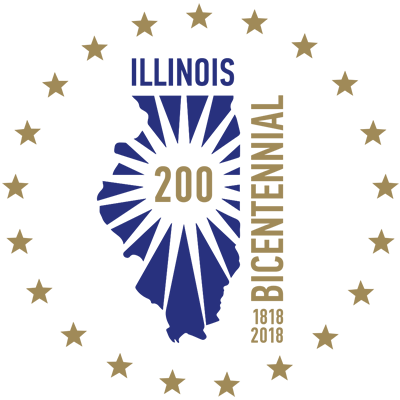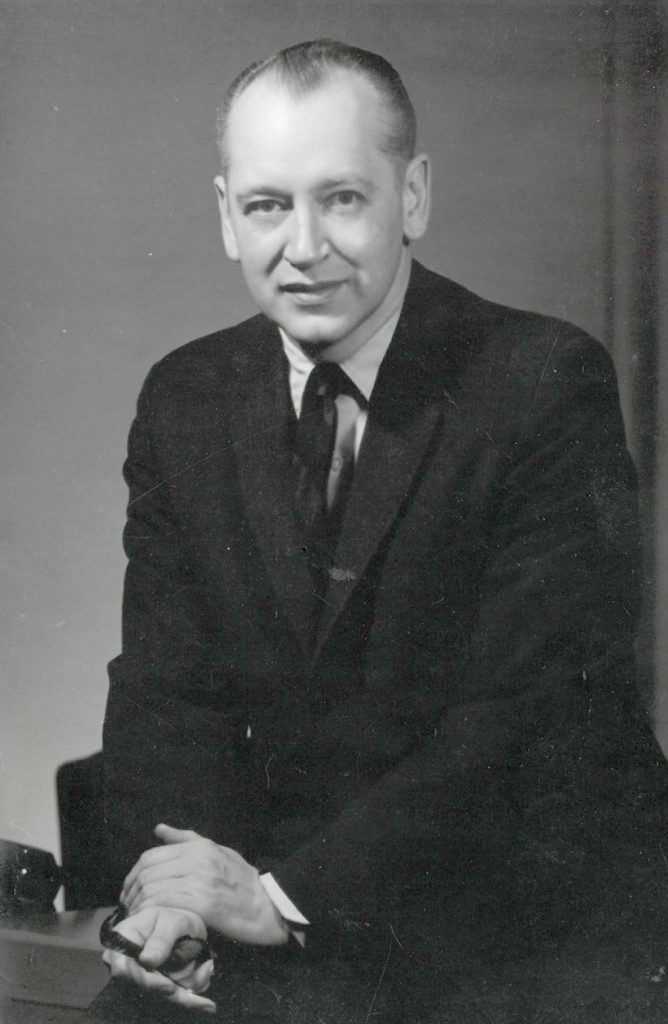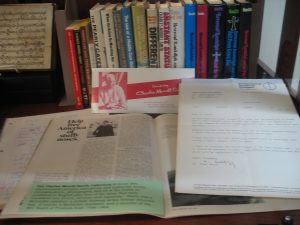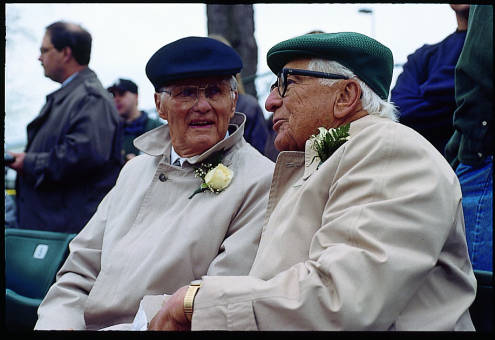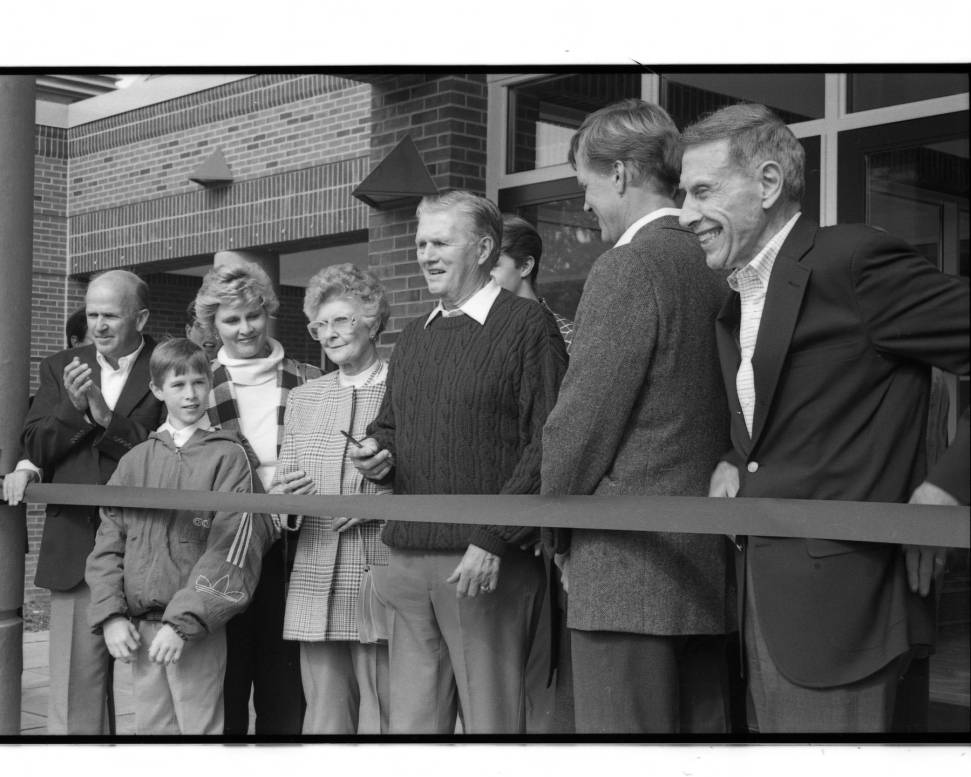It’s almost twenty years since the pillars were installed by Felmley-Dickerson as our main campus entry! This post commemorates that legacy due to newly re-discovered images you will find below and a recently digitized film of the dedication. The text that follows is from this August 23, 2000 press release by Bob Aaron. [Photos were not part of the original press release. Click to enlarge. Additional images are available in the online historical collections.]
The University’s Sesquicentennial Gateway, located at the corner of Park and Empire, was dedicated on Oct. 14, 2000 as part of Homecoming festivities. The two-section curved gateway to the campus features two inscriptions: “Illinois Wesleyan University” and “1850 Scientia et Sapienta 2000” (the University’s motto, “Knowledge and Wisdom”).
Four pillars are the gateway’s architectural highlight. They were key design features that
straddled the entrance to a building at Hedding College, an Abingdon, Ill., campus, that merged with IWU in 1930.
- Advertisement for Hedding College showing the Main Building, ca. 1922
- Postcard with Hedding College’s Main building
The four limestone pillars are composed of eight segments each. Each pillar is about 25-feet tall. They stand on a wall five-to-six feet tall.
The Rev. Henry M. Bloomer, president of Hedding’s Board of Trustees, preserved the pillars in the hope they would one day be used to honor his mother and father and the joint heritage of Hedding College and IWU. His son, H. Harlan Bloomer, presented the pillars to IWU to commemorate the university’s sesquicentennial. The late Harlan Bloomer was married to Florence Bloomer, who is the granddaughter of Joseph Fifer, governor of Illinois from 1889-93, an 1868 graduate, and the 37th student to earn an IWU diploma.
- Segments at the Bloomer farm
- Segments in the IWU Park Street parking lot area


